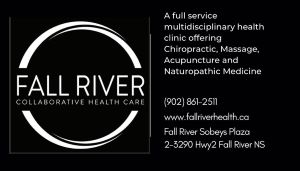Grants will fund COVID-19 and vaping research
HALIFAX: The Lung Association of Nova Scotia (LANS) announced yesterday that it has awarded $50,000 in grants, in partnership with Research Nova Scotia, to fund local research on COVID-19 and youth vaping.
“Lung health has never been more important, as the coronavirus pandemic continues,” said Robert MacDonald, President & CEO of LANS. “Nova Scotia is home to world-class leading researchers, and we are very proud to be supporting local research that could potentially help in treating this deadly virus.”
The research team, led by Dr. Denys Khaperskyy, will be investigating how existing FDA-approved drugs can weaken the coronavirus’ ability to evade the immune system.
While the development of novel drugs could take years to get to market, medications that are already approved by the FDA can be re-purposed for the treatment of new diseases. If effective against COVID-19, these drugs would have a much more rapid transition from bench to bedside.
“We are grateful to the Lung Association of Nova Scotia for supporting our research,” said Dr. Khaperskyy. “Our hope is that this research helps to identify existing drugs that can improve the outcomes for people who get the coronavirus.”
The second grant was awarded to Dr. Jong Sung Kim and team, and will be used to investigate the amount of VEA (vitamin E acetate) and VOCs (volatile organic compounds) in exhaled breath, through non-invasive collection methods. These “volatolomes (entirety of VOCs)” of young e-cigarette users will be correlated to the outcomes of lung function tests in youth. This could potentially identify chemicals associated with e-vapour that could have negative impacts on the lung health of youth who vape, helping to strengthen anti-vaping messaging in our province.
“Vaping has become much more prevalent among youth in recent years,” said MacDonald. “While the province has implemented strong measures to help curb youth vaping rates, we are happy to support research that can further identify harmful chemicals in vaping products. This will serve to further educate youth, which will ultimately help keep vaping rates down in our province.”
Dr. Elizabeth Cowley, Chair of the Legacy Research Grant Review Committee, was impressed by the submissions to this year’s competition.
“It was my privilege to act as chair of the Legacy Research Grant review panel this year and I was impressed by the quantity and quality of applications we received. These applications came mainly from young investigators and I think we should all be excited that the future of lung health research in Nova Scotia looks so promising.”
The Legacy Research Grant has been supporting local, innovative, cutting-edge research for over 30 years. The grants are intended to provide seed funding to researchers in areas of lung health. Both of these supported projects will ultimately help improve lung health in Nova Scotia.
Additional quotes:
Dr. Jong Sung Kim:
“Many chemicals and particles such as vitamin E acetate and metal nanoparticles are released from an e-cigarette and inhaled during vaping, which may have toxic effects on the lungs. We will use exhaled breath as a non-invasive bio-specimen that can be used to measure levels of exposure to these hazards.
“We are very excited to work with the Lung Association of Nova Scotia on this project. Our work has the potential to highlight specific chemicals associated with e-cigarette smoke that may have an effect on the lung function of youth.”
Error, group does not exist! Check your syntax! (ID: 9)




























